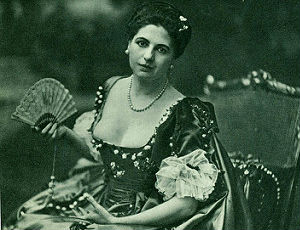With the recent publication of Mata Hari's Last Dance, Michelle Moran expertly paints fiction between what we know for sure about the famed dancer, courtesan, and terribly inept spy. Born Margaretha Zelle in Holland, Mata Hari chose her stage name upon coming to Paris after a miserable youth. Teaming up with the ambitious lawyer/agent Edouard Clunet, she takes Paris and then the rest of Europe by storm. After spending her way through a few fortunes, the fading Mata Hari gets swept up in WW I and takes to espionage to finally secure her future. Needless to say, it doesn't pan out. She may know men, but Mata Hari has no concept of politics, especially those in wartime, when she is more useful to both sides dead than alive. Michelle Moran's eye for material detail is especially useful here with a main character so caught up in the physicality of life. Moran also really gets inside the head of a woman who may have seemed superficial, but was deeply wounded.
Yannick Murphy also wrote a novel about Mata Hari: Signed, Mata Hari. Told from various perspectives, this is a sensual, poetic rendering of her life. Focusing more on Mata Hari's early life than Moran's book, Murphy is a little more loose with the facts. However, facts not being something Mata Hari specialized in, this is still an atmospheric and haunting novel.
There are at least two good biographies of Mata Hari, the more recent being Femme Fatale by Pat Shipman. Compelling reading, Shipman's book sees Mata Hari as an expert manipulator who was tried in a kangaroo court in part because of her sexual independence as well as doctored evidence. Russell Warren Howe, who wrote Mata Hari, the True Story, was one of the first to see Mata Hari's judicial files, the evidence of her incompetence as a spy for France and her innocence of the charges against her. Howe's conclusion that the histrionic Mata Hari was truly superficial, just looking for one last payday so that she could settle down, does not seem to diminish his sympathy for her.
A&E's Biography series produced Mata Hari, an audio/visual overview of her life. Sympathetic, it plainly makes the case for the framing of a faded star. On the other hand, Greta Garbo starred in the 1931 movie Mata Hari, a fantasy that has some tangential relationship to the truth. Involving only her wartime experiences, the movie paints her as a German spy who falls in love with a Russian soldier who is blinded in an accident. After her capture, Mata Hari's jailers adopt the pretense of a sanatorium for the blind soldier's benefit before Mata Hari is taken away to be shot. However, for pure entertainment, it's hard to beat the glamorous Garbo.
What's your take on the myth of Mata Hari? Let us know in the comments section.




Add a comment to: Who Was Mata Hari?